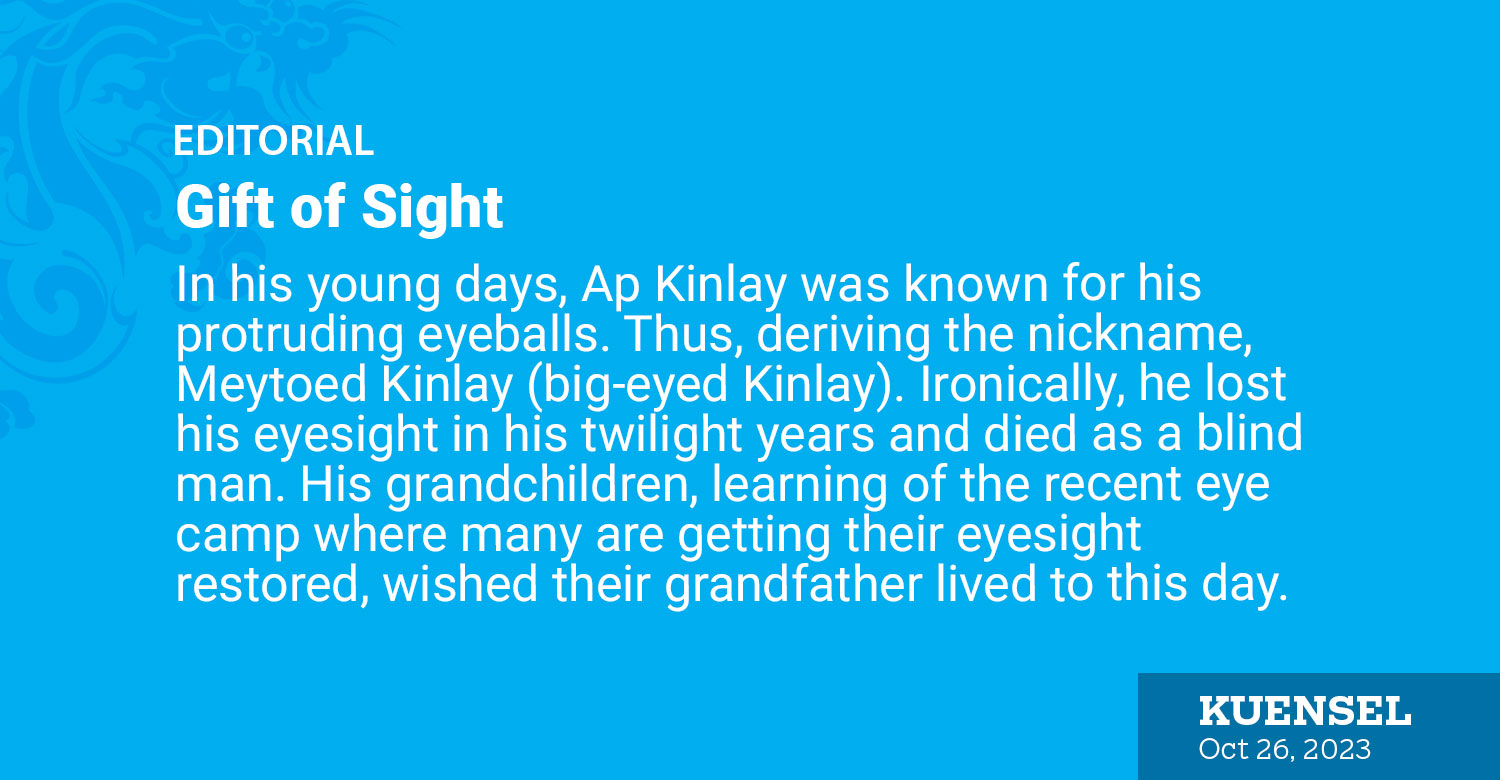In his young days, Ap Kinlay was known for his protruding eyeballs. Thus, deriving the nickname, Meytoed Kinlay (big-eyed Kinlay). Ironically, he lost his eyesight in his twilight years and died as a blind man. His grandchildren, learning of the recent eye camp where many are getting their eyesight restored, wished their grandfather lived to this day.
These past few days, many Bhutanese were thanking Her Majesty Gyalyum Kesang Choeden Wangchuck for her initiative to restore eyesight through “eye camps.” It is however not the first camp. Hundreds, if not thousands of Bhutanese have seen their life transformed by the Royal initiative.
Many will not be able to appreciate the initiative. But ordinary Bhutanese like Bir Maya Rai, 55, getting a new life, literally, on the eve of Dassain, would know how much the Royal initiative means to them. Being able to see her children and the Dassain celebrations, after a long time, means everything to the mother.
Losing eyesight for many reasons is common in Bhutan. It is also common not to know that eyesight can be restored. Taking the eye restoration camps to the people is a noble initiative. In Bhutan, even today many believe that blindness can be cured only through supernatural powers.
For Bir Maya, Nakey, and Bidha, the expertise of Dr Sanduk Ruit, the Royal initiative, and the support provided by the health ministry is a miracle as they literally see their lives transformed. Dr Sanduk is a world-renowned ophthalmologist who has restored the eyesight of over 180,000 people across Africa and Asia using small-incision cataract surgery, a world record. Dr Sanduk Ruit together with philanthropist Tej Kohli co-founded the Tej Kohli and Ruit Foundation. It has been instrumental in helping countries like Bhutan eliminate untreated cataract blindness.
A good friend of Bhutan and honoured with National Order of Merit, Gold in 2015 during the 108th National Day by His Majesty The King, the Nepali doctor had been doing a great service to Bhutan with the people feeling the benefit of his service to humanity. According to the Tej Kohli and Ruit Foundation, about 10,460 people in Bhutan are awaiting cataract surgery. It is a huge number for a small country. Given the initiative, many will see their sight restored. What is encouraging is that the eye camps are making people come forward to seek help.
Our health services have advanced and there are professionals, even if limited, and resources to treat cataract blindness. The problem is not many are aware, especially in remote Bhutan. Taking the initiative to the people is making a huge difference. Taking it to the people by a world-renowned Royal initiative could, as beneficiaries say – transform lives by eliminating needless treatable cataract blindness in the country while strengthening the capabilities of local medical professionals.
Bhutan and Bhutanese will ever remain grateful to the Royal initiative as it changes or transforms lives.


